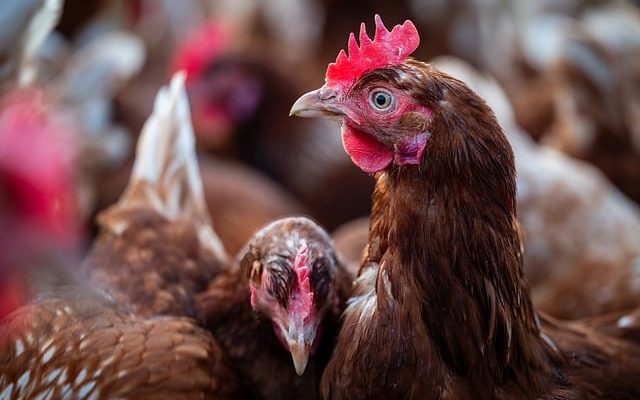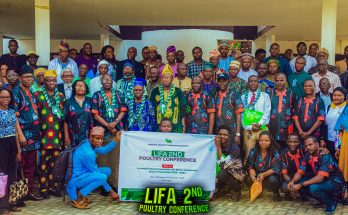Avian influenza (AI), commonly known as bird flu, has been a persistent threat to poultry farming in Nigeria since its first outbreak in 2006. The disease continues to resurface periodically, causing significant economic losses to poultry farmers, threatening food security, and posing risks to public health. Despite various control measures, the impact of AI remains a challenge for Nigeria’s agricultural sector
Livestock Industry Foundation for Africa (LIFA), under the leadership of Dr. Stephen Adejoro, has played a pivotal role in advocating for strategic approaches to mitigate the risks of avian influenza. This report examines the current challenges, highlights LIFA’s past contributions, and proposes a comprehensive policy framework to control AI effectively.
Challenges in Managing Avian Influenza
- Ineffective Control Measures: The initial policy of stamping out infected birds and compensating farmers has been modified to exclude large-scale poultry projects. This change has left many farmers vulnerable and unable to recover from losses.
- Opposition to Vaccination: Resistance to adopting vaccination as a control strategy has hampered efforts to minimize outbreaks.
- Weak Biosecurity Practices: Many poultry farms lack adequate biosecurity measures, leading to the rapid spread of the disease.
- Limited Surveillance: The absence of a robust monitoring system delays the detection of outbreaks, reducing the effectiveness of control measures.
- Inadequate Awareness: A lack of public awareness about the disease and its preventive measures contributes to recurring outbreaks.
- Insufficient Research and Development: Limited research into effective vaccines, diagnostic tools, and the epidemiology of AI in Nigeria has slowed progress in combating the disease.
LIFA’s Contributions
LIFA has been at the forefront of addressing avian influenza challenges in Nigeria. Notable contributions include:
- Advocacy for Strategic Vaccination: Dr. Stephen Adejoro and LIFA have consistently advocated for a nationwide vaccination strategy as a crucial measure to control AI outbreaks. This approach aims to reduce the spread of the disease and mitigate losses for farmers.
- Policy Recommendations: Through research and presentations, such as Dr. Adejoro’s lecture on “Avian Influenza in Nigeria: LIFA Perspective and Recommendations” (https://youtu.be/RLKoUxVIZ-I?si=_ATwq1crnsF0OL-G), LIFA has provided actionable insights to policymakers and stakeholders.
- Farmer Education: LIFA has engaged in campaigns to raise awareness among poultry farmers about biosecurity measures and the importance of early detection.
- Stakeholder Engagement: The foundation has fostered collaboration among government agencies, private sector players, and international organizations to develop coordinated responses to AI outbreaks.
Recommendations for Policy Updates
To effectively control and minimize the regular outbreaks of avian influenza in Nigeria, the following strategies are recommended:
Vaccination Strategy
- Implement a nationwide vaccination program, focusing on high-risk areas and poultry populations.
- Establish partnerships with vaccine manufacturers to ensure the availability of affordable and effective vaccines.
Biosecurity Measures
- Enforce strict biosecurity protocols on poultry farms, including regular cleaning and disinfection, proper waste management, and restricted access.
- Train farmers and farmworkers on best practices for biosecurity.
Surveillance and Monitoring
- Develop a robust surveillance system to detect early warning signs of outbreaks.
- Equip veterinary services with modern diagnostic tools to improve response times.
Compensation and Support
- Revise the compensation policy to cover both small-scale and large-scale poultry farms.
- Provide financial and technical support to farmers affected by outbreaks.
Public Awareness
- Launch nationwide awareness campaigns to educate farmers, traders, and the public about AI prevention and control measures.
- Utilize local languages and community-based approaches to ensure widespread reach and understanding.
Research and Development
- Encourage research into the development of effective vaccines and diagnostic tools.
- Conduct epidemiological studies to understand AI transmission patterns and risk factors specific to Nigeria.
Conclusion
Avian influenza remains a significant threat to Nigeria’s poultry industry and overall food security. However, by adopting a comprehensive and multi-faceted approach-one that includes vaccination, biosecurity, surveillance, compensation, awareness, and research, the country can effectively control and minimize the impact of AI outbreaks. LIFA’s ongoing advocacy and contributions serve as a model for addressing this challenge, highlighting the importance of collaborative efforts among stakeholder





Superb breakdown of feed quality—especially how proteins, probiotics, and feed conversion ratio drive growth performance and flock health.